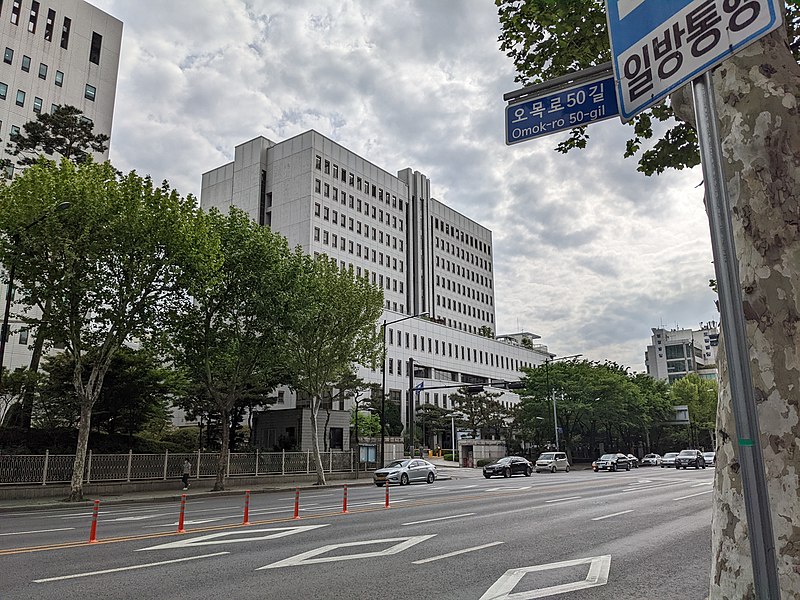South Korean prosecutors are seeking to obtain an arrest warrant for the leader of the opposition Democratic Party this week. The arrest warrant is part of an investigation into development projects and allegations of bribery.
On Thursday, South Korean prosecutors are looking to obtain an arrest warrant for the main opposition Democratic Party leader Lee Jae-myung, a former presidential candidate. Lee is accused of breaching his duty over losses of $382 million run up by the Seongnam Development Corporation during his time as Seongnam City mayor, according to prosecutors.
Lee is also accused of demanding that four companies provide ₩13.3 billion to Seongnam FC when he was serving as the head of the football club in exchange for unlawful administrative favors that prosecutors described as bribery. Lee, who also served as the mayor of Seoul from 2010 to 2018, denied any wrongdoing.
“What I did was develop the region using the authority given to me as the Seongnam mayor following due legal procedures,” said Lee. “I didn’t do a single act of injustice, didn’t take a single penny of dirty money.”
A Seoul court needs the South Korean parliament, where the Democratic Party holds a 169-seat majority, to waive Lee’s immunity from arrest to review the prosecution’s arrest. The party has since criticized the prosecutors’ move as an “unprecedented act of violence to incapacitate the opposition party and eliminate the president’s political enemy.”
Lee lost to President Yoon Suk-yeol during the elections last year by a slim margin.
Meanwhile, a group of South Korean victims of Japan’s wartime forced labor is accusing the South Korean government of rushing a compensation plan with Japan for diplomatic and political gain.
A lawyer representing several of the victims, Lim Jae-sung, said Yoon’s office and the South Korean foreign ministry are forcing its proposal of paying the victims compensation through a public fund instead of funds from Japanese companies despite the backlash in order to fast-track its efforts to improve ties and hold a summit in Japan.
“For public reasons, they’re saying the victims are old and the issue has not been resolved for too long, but I think they’re pushing to normalize relations with Japan by ending the dispute and make it a political legacy,” said Lim during a news conference in Seoul.



 TrumpRx Website Launches to Offer Discounted Prescription Drugs for Cash-Paying Americans
TrumpRx Website Launches to Offer Discounted Prescription Drugs for Cash-Paying Americans  Trump Allegedly Sought Airport, Penn Station Renaming in Exchange for Hudson River Tunnel Funding
Trump Allegedly Sought Airport, Penn Station Renaming in Exchange for Hudson River Tunnel Funding  Iran–U.S. Nuclear Talks in Oman Face Major Hurdles Amid Rising Regional Tensions
Iran–U.S. Nuclear Talks in Oman Face Major Hurdles Amid Rising Regional Tensions  U.S. to Begin Paying UN Dues as Financial Crisis Spurs Push for Reforms
U.S. to Begin Paying UN Dues as Financial Crisis Spurs Push for Reforms  Norway Opens Corruption Probe Into Former PM and Nobel Committee Chair Thorbjoern Jagland Over Epstein Links
Norway Opens Corruption Probe Into Former PM and Nobel Committee Chair Thorbjoern Jagland Over Epstein Links  Trump’s Inflation Claims Clash With Voters’ Cost-of-Living Reality
Trump’s Inflation Claims Clash With Voters’ Cost-of-Living Reality  India–U.S. Interim Trade Pact Cuts Auto Tariffs but Leaves Tesla Out
India–U.S. Interim Trade Pact Cuts Auto Tariffs but Leaves Tesla Out  Trump Allows Commercial Fishing in Protected New England Waters
Trump Allows Commercial Fishing in Protected New England Waters  Nighttime Shelling Causes Serious Damage in Russia’s Belgorod Region Near Ukraine Border
Nighttime Shelling Causes Serious Damage in Russia’s Belgorod Region Near Ukraine Border  U.S.-India Trade Framework Signals Major Shift in Tariffs, Energy, and Supply Chains
U.S.-India Trade Framework Signals Major Shift in Tariffs, Energy, and Supply Chains  Trump Signs “America First Arms Transfer Strategy” to Prioritize U.S. Weapons Sales
Trump Signs “America First Arms Transfer Strategy” to Prioritize U.S. Weapons Sales  US Pushes Ukraine-Russia Peace Talks Before Summer Amid Escalating Attacks
US Pushes Ukraine-Russia Peace Talks Before Summer Amid Escalating Attacks  Jack Lang Resigns as Head of Arab World Institute Amid Epstein Controversy
Jack Lang Resigns as Head of Arab World Institute Amid Epstein Controversy  Netanyahu to Meet Trump in Washington as Iran Nuclear Talks Intensify
Netanyahu to Meet Trump in Washington as Iran Nuclear Talks Intensify  Japan Election 2026: Sanae Takaichi Poised for Landslide Win Despite Record Snowfall
Japan Election 2026: Sanae Takaichi Poised for Landslide Win Despite Record Snowfall  Trump Says “Very Good Talks” Underway on Russia-Ukraine War as Peace Efforts Continue
Trump Says “Very Good Talks” Underway on Russia-Ukraine War as Peace Efforts Continue 































